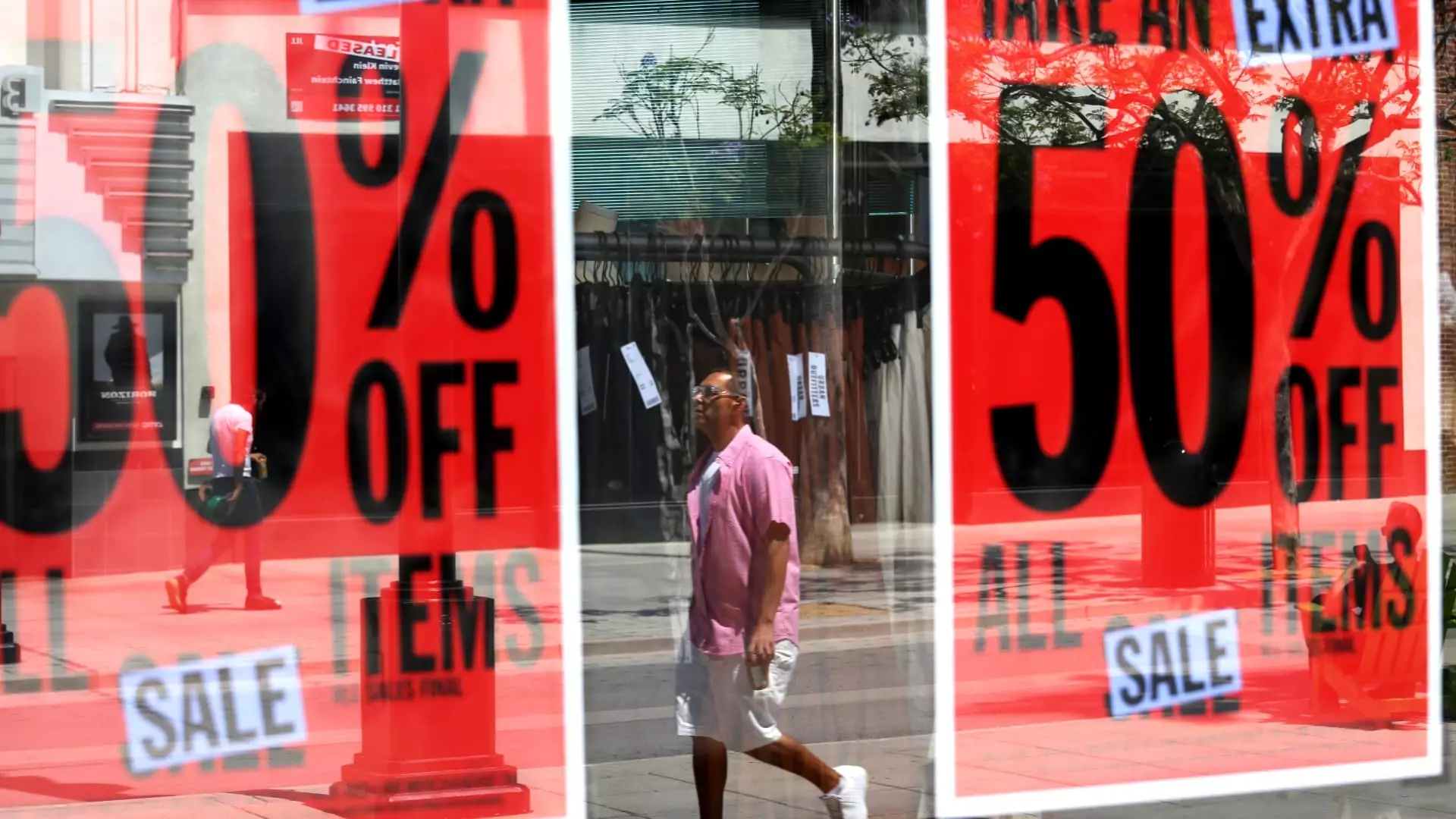In an era marked by fluctuating economic landscapes, the strategic maneuvering of retailers seeking to capitalize on the possible repercussions of President Donald Trump’s trade policies is nothing short of remarkable. The current economic climate is rife with uncertainty, thanks largely to the ongoing trade war characterized by reciprocal tariffs against multiple nations. Retailers are not just bracing themselves; they are pivoting towards marketing strategies that play on consumer angst. By urging shoppers to purchase goods now—while prices remain ostensibly stable—they exploit fears of impending price hikes and product shortages. This approach, while seemingly pragmatic from a business perspective, raises alarming ethical questions about the role of fear in consumer purchasing habits.
Fear as a Sales Tool
Using consumer anxiety as fuel for sales is a tactic that many brands have adopted recently, including direct-to-consumer giants like Beis and Bare Necessities. The messaging is clear: “buy now or pay more later.” Such marketing strategies could reinforce a vicious cycle where anxious consumers feel compelled to act hastily—an instinct that can lead to regretful spending decisions. For instance, Bare Necessities’ pre-tariff sale, complete with the tagline, “We didn’t know how to spell tariff last week,” exemplifies this manipulation. By catering to shoppers who are unsettled by economic uncertainty, brands prioritize immediate cash flow over long-term customer trust, which arguably is a reckless gamble.
The Broader Implications for Consumer Behavior
The impending storm of increased tariffs creates a schism in consumer behavior, generating a push towards “panic buying.” Solid projections anticipate a dip in consumer spending as the year progresses. Experts like Sonia Lapinsky articulate this issue clearly, indicating that retailers must generate demand urgently—or risk not generating any at all in the coming months. As shifting events in the marketplace become increasingly unpredictable, retailers are incentivizing purchases now to safeguard against future financial vacuums. However, feeling pressured to buy due to potential future tariffs can ultimately backfire, leading to disillusioned consumers who may feel exploited once the haze of urgency dissipates.
The Struggles of Small vs. Large Retailers
It’s worth noting that the fallout from these tariffs is not evenly distributed. Smaller brands, often lacking the diverse supply chains that larger players enjoy, face a particularly dire scenario as they grapple with financial fragility. While colossal retailers like Walmart can source goods from around the globe, smaller enterprises find themselves trapped by limited options. The pressure to offer discounts to stimulate immediate sales could lead to unsustainable practices that undermine their viability in the long term. Thus, the burden of tariffication disproportionately affects those who can least afford it, ultimately allowing larger brands to overshadow them even further.
The Balancing Act of Humor and Reality
Interestingly, retailers are also navigating sensitive political waters through humor. Take the example of Beis, which illustrated the chaotic landscape of tariffs with a bit of levity, referring to the situation as a “complete dumpster fire.” This injection of humor serves multiple purposes, acting as a buffer against potential backlash while conveying essential product information. However, employing humor, especially in a politically laden context, poses its own risks: it could trivialize a complex issue that affects real lives. Moreover, such strategies may neutralize customer sentiment rather than reinforce genuine connections, turning brands into mere profit-seeking entities rather than relatable community members.
The Illusion of Stability
Nothing bleeds into the consumer psyche like the illusion of stability amidst chaos. Retailers like those at Bare Necessities and Beis are essentially asking consumers to willingly navigate uncertain waters while hoping to maintain their own financial stability. The tactic of marketing through fear of inflation is only as effective as the consumer’s perception of impending doom. As some shoppers succumb to the urgency of the pitch, they may remain oblivious to the deeper structural issues contributing to the trade war and the potential long-term impacts of short-term purchasing decisions. If the economic landscape shifts sharply, today’s hasty buying could morph into tomorrow’s buyers’ remorse.
While it’s fascinating to observe retail strategies adapting to external pressures like tariffs, the implications for consumer behavior and brand integrity are equally significant. The interplay of fear, urgency, and humor creates a complex narrative that warrants careful scrutiny. Instead of merely reacting to these economic shifts, consumers must remain vigilant, understanding the delicate balance between necessary purchases and the danger of succumbing to undue pressure.

